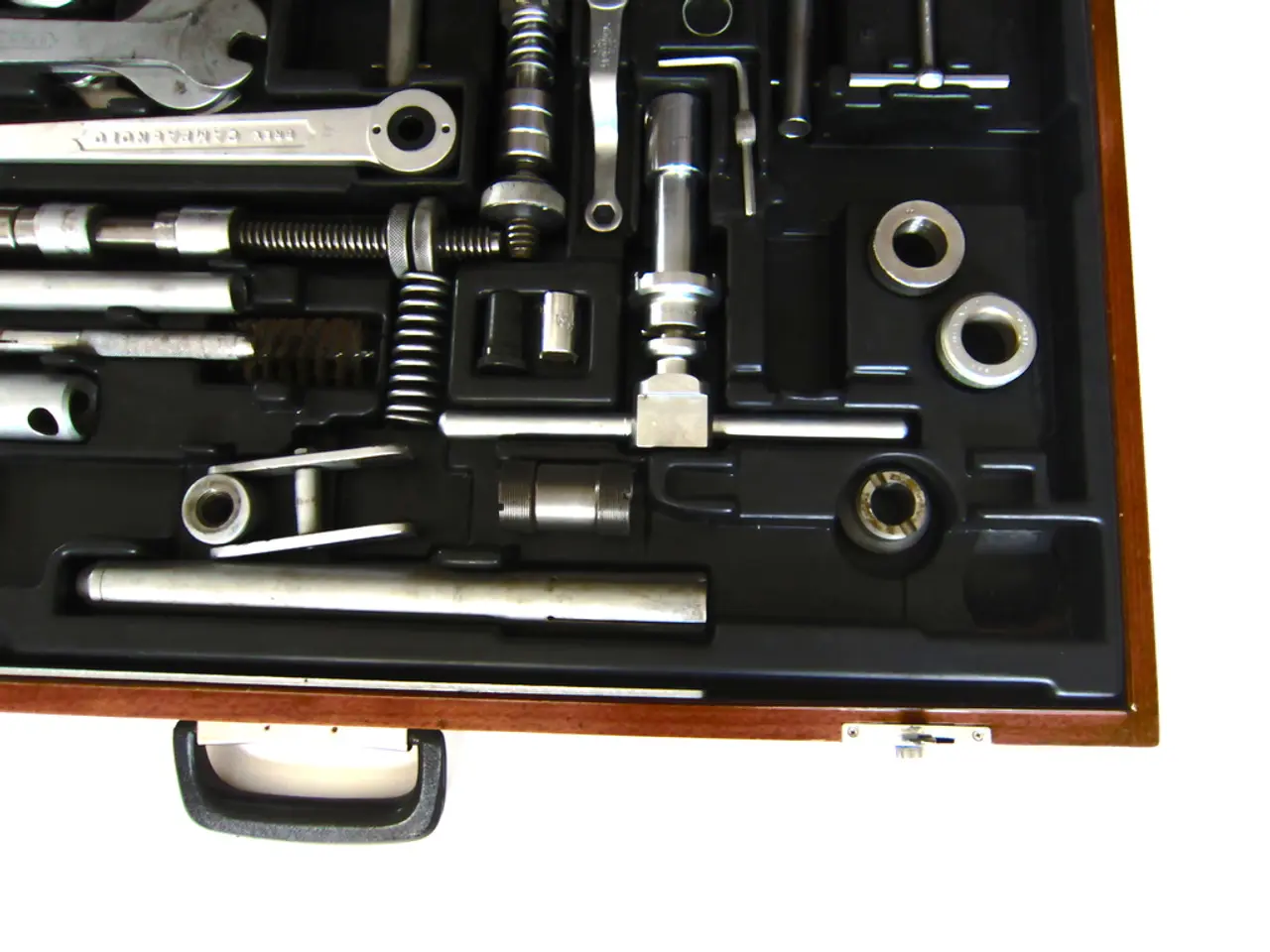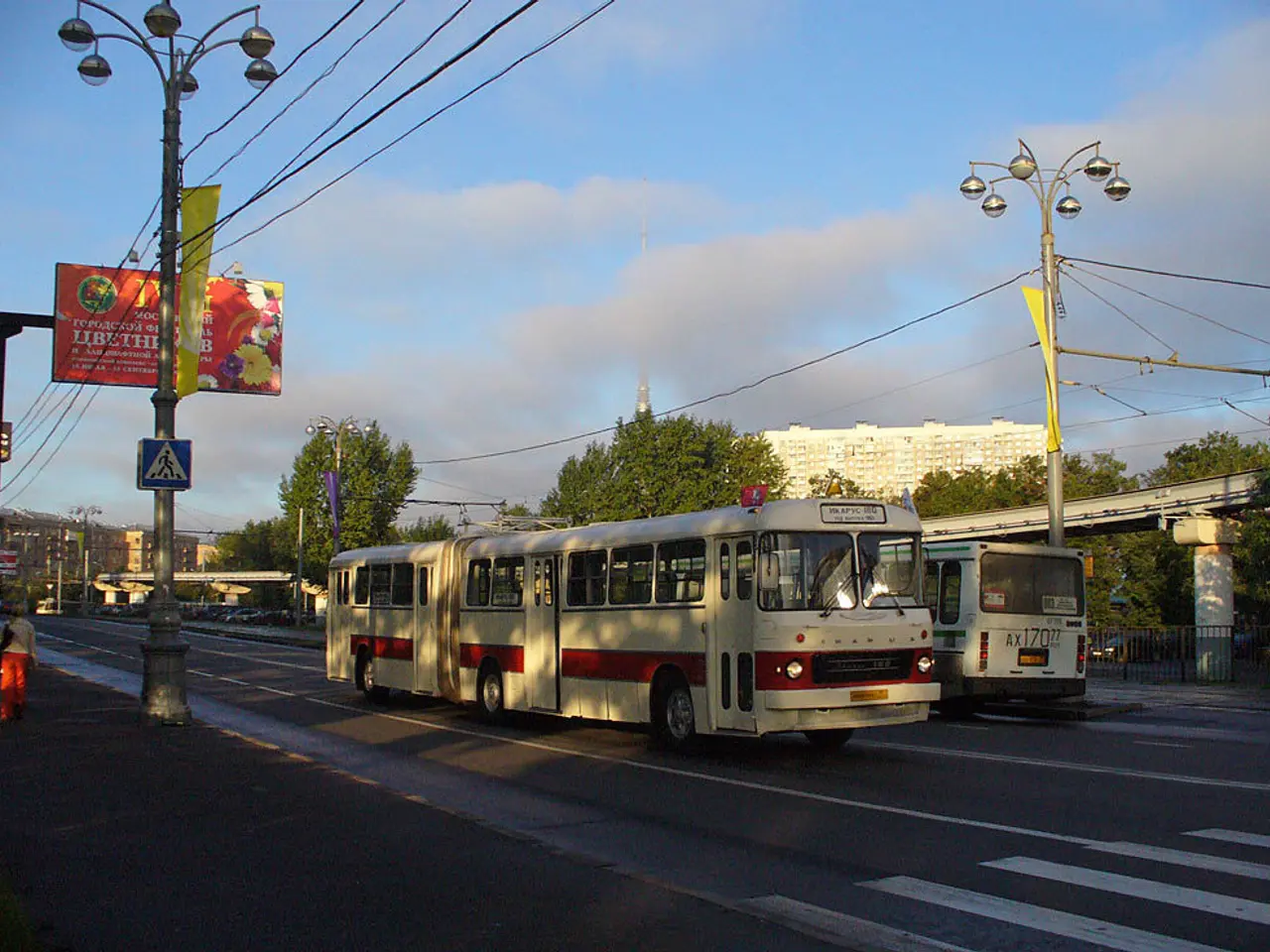Drone operations by MMCZ aim to curtail illegal gold and lithium smuggling. Can their efforts successfully eliminate this issue?
In the heart of Africa, Zimbabwe continues to grapple with the issue of mineral smuggling, particularly involving lithium and gold. Despite government efforts to regulate and control this illicit trade, it persists, with smugglers employing tactics such as mislabeling shipments and corrupt collusion among officials, even after raw lithium export was banned in 2022 to promote domestic processing and curb illegal exports [1][2].
The Mineral Marketing Corporation of Zimbabwe (MMCZ), a government parastatal responsible for overseeing mineral exports, is taking a proactive approach to combat this issue. Nomsa Jane Moyo, the General Manager of MMCZ, has stated that the corporation is intercepting illegal shipments and enforcing export regulations. In 2023 and 2024, MMCZ and border officials notably seized lithium loads before they reached export points at the Forbes and Beitbridge border posts [2].
To strengthen their anti-smuggling efforts, MMCZ has turned to technology. Drones are now being used to surveil mining areas and transport routes, improving oversight capabilities in remote or difficult-to-monitor regions. This shift in the government's approach to technology usage is seen as a positive development, as drones can potentially detect more ore on the ground than declared, or minerals being loaded at night in suspicious locations [2].
Additionally, MMCZ has introduced a whistle-blower platform to encourage reporting of illegal activities anonymously, aiming to reduce corruption and improve enforcement. This move is a response to the failure of traditional systems in monitoring mining operations [2].
Gold smuggling also poses a significant challenge, with estimated losses amounting to billions of US dollars annually due to bureaucratic bottlenecks, heavy taxation, and infrastructure challenges [3]. Despite record-high gold exports and foreign currency earnings, the smuggling of gold continues.
However, the success of these new measures hinges on whether they can effectively combat mineral smuggling in Zimbabwe. There have been speculations and conspiracy theories suggesting that someone within the system might be involved in the smuggling issue or uninterested in addressing it. If the new measures are just for show, the smugglers may continue their activities with increased vigilance.
On the other hand, if followed up with real action and a secure, trusted whistle-blower platform, these measures could mark a turning point in Zimbabwe's fight against mineral smuggling. The MMCZ acknowledges the importance of this battle, and the use of technology for more than just press statements is a step in the right direction.
References:
[1] Zimbabwe Situation Report 28 (2023), Global Initiative against Transnational Organized Crime. [2] Interview with Nomsa Jane Moyo, General Manager of the Mineral Marketing Corporation of Zimbabwe (MMCZ), 2023. [3] Zimbabwe Gold Smuggling: A Persistent Challenge, International Monetary Fund, 2024. [4] Zimbabwe's Mineral Smuggling: A Complex Web of Corruption and Political Influence, The Economist, 2023.
The Mineral Marketing Corporation of Zimbabwe (MMCZ) is leveraging technology to enhance its anti-smuggling efforts, as drones are now being used to monitor mining areas and transport routes, potentially detecting undeclared or suspicious mineral activities [2]. Furthermore, MMCZ has introduced a whistle-blower platform to encourage anonymous reporting of illegal activities, aiming to reduce corruption and improve enforcement [2]. In the finance sector, billions of US dollars are lost annually due to gold smuggling, and efforts toward curbing this issue are crucial for both the country's economy and its international standing [3].




